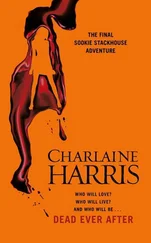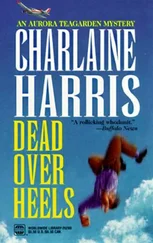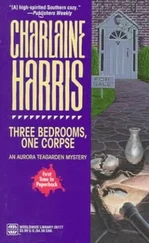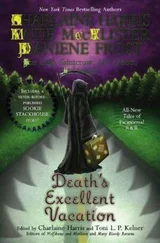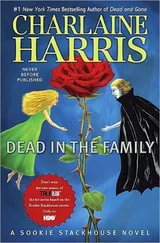“Won’t you come inside?” she asked.
“We don’t want to trouble you, but we would like to ask you some questions,” said Mr. Mascalco.
“Of course,” she said blankly.
As she preceded the Mascalcos into the house, she felt as if she was walking through water. It was an almost physical sensation of pressure, a buoyant feeling of absolute unreality.
While the Mascalcos sat on the couch where Catherine had huddled the night before with their son’s blood on her clothes and hands, she made coffee and carried it in to them.
The couple touched her so deeply that a little of her drifting sensation ebbed away. She felt her rage dissolving at the edges as she responded to their grief, their bewilderment at the death of their oldest child and only son.
Mrs. Mascalco wept and apologized for weeping. Her husband sat with his arm around her, his face distorted with emotion.
They asked her questions.
I must be careful, she told herself repeatedly.
It would shock them, and they might well hate her, when they discovered their son had died not because he possessed information dangerous to the murderer but because he had rented a house from Catherine.
“We would like to go into the house,” Mrs. Mascalco said finally. “We need to get some of his things for the funeral. One of his suits.”
“No,” said Catherine sharply, jolted back into complete awareness. They couldn’t see the old office the way it was. She could hardly bear to think of walking through the spattered hall herself, though that was where she must go as soon as they left.
“His brown suit,” Mrs. Mascalco said. “A tie.”
“I want to see where my son died,” said her husband.
“No,” Catherine said firmly.
Tom’s father, she saw, was passing from grief to anger, ready to take issue with anything.
Catherine got blanker of face and firmer of voice. She remembered what the scene of her parents’ crash had looked like. She had seen the car, too.
She promised to get them the suit. No, not now, later. The sheriff had sealed the house, Catherine told them. She wondered, after she said it, if that was true.
Go, she urged them silently. Go.
But they wanted to know more details about the night before. They wanted to linger with Catherine. After all, she had been with their son when he died.
Catherine finally thought of offering them food, but she could think of nothing she had in enough quantity for three people. As if she could eat-but she would have to put up a pretense.
At last Mr. Mascalco looked at his watch.
“My God, Elise, we have to go,” he said.
After many leave-takings, they departed, obviously puzzled by Catherine’s increasingly tense manner. They couldn’t reconcile the time and effort she had given them with the chilly, fixed blankness of her face.
“I’ll get the suit tomorrow,” she told them. “I’ll send it up the fastest way I can.”
She took their address. Reassured by her sincerity, Tom’s parents were finally out the front door and into their car.
After she made sure their headlights were pointing in the right direction, toward the highway, she shut the door.
Headlights, she thought. It’s dark. It’s night.
She had to move, and move fast. The murderer would act tonight, too.
Perhaps the evidence had already disappeared from its hiding place. He would not have to wait very late. After all, he knew that tonight Tom really wouldn’t be there.
Moving swiftly, clumsy in her urgency, she rummaged through a kitchen drawer for the extra keys to the old office. The police had Tom’s, but she had a set of her own. While searching, she found her gun where she had thrust it the night before.
“Always check your gun before you use it,” her father had said.
She hadn’t last night, but she did now. She had reloaded Saturday morning, before she found Leona’s body. The gun was ready.
She had started out the back door when a new thought struck her. If anything happened to her-No, she said. Face it. If I am killed, no one else will know what I know.
She had left the Dr. Croft column on Randall’s desk, but she hadn’t told him about Betty’s account of the mysterious interview in Dr. Linton’s office shortly before the fatal accident. Betty’s story was not essential, but it was corroborative-though Betty hadn’t seen the man’s face.
The only solid proof was in that file in the attic. She must at least tell someone else that it existed, and then move as fast as possible.
She went back to the telephone, and dialed the Gazette number. Randall answered.
“Listen,” she said. Then it was too much like her call the night before. She had to wait for a wave of dizziness to pass.
“Catherine, is that you? What’s wrong? Where are you?”
“I’m at home, Randall. I have to tell you something. Have you read that column?”
“Yes,” he said. “I’m listening.”
“This is what I’m going to do,” she said. “And why.”
“Wait for me!” he was saying almost before she finished telling him.
“No,” she replied. “I have to go now.”
She hung up before he could say anything else.
The Mascalcos’ departure had given her back her rage. She was across the moonlit yard, through the hedge, walking up to the back door. Carried along by her anger, she felt strong as a lion. But her body was telling her something quite different, she found as she approached the old office. She had to stop and wait for a wave of weakness to pass, before she could go on.
I should be afraid, she realized. I should be afraid.
She had to fit the rage somewhere in her tired body, shift it so it could be borne. It was threatening to dispose of her.
With difficulty she fit the key in the lock. The moonlight made her arms look eerily gilded. She thought of how clearly she could be seen if anyone was watching.
But still she was not afraid.
The back door swung open. The moon shone in on the white walls covered with dark splotches. A tiny shiver edged along her spine.
The attic door was in this hallway.
She switched on the light and looked up. There was the dangling cord. She laid her gun on the floor, so she could use both hands to reach it. But the old house was high-ceilinged, and she couldn’t stretch far enough to grasp the cord.
Leona had pulled it down for her the last time she had gone up in the attic.
Catherine remembered the stool that had been in Tom’s kitchen on Sunday. She went to fetch it.
At last she could reach the cord. She pulled, and the rectangular wooden slab that fit into the ceiling descended. She pulled out the flimsy stairs that lay folded against it.
The single railing was weak, and Catherine remembered worrying that it might give way while she and Leona were maneuvering the filing cabinets up those narrow folding stairs.
Almost as an afterthought, she picked up the gun. Then she ascended into blackness.
The only light in the attic was a bare bulb in the middle of the sloping roof. She yanked the string dangling from it, and the attic was flooded with light.
She had played there as a child. Then it had held trunks of her grandmother’s old clothes. Now it only contained two filing cabinets, sitting close to the top of the stairs in the only area where a person could stand upright.
The slots no longer had labels, so Catherine had to go through each drawer looking for the file she wanted. There weren’t many left. That helped. Few people were so healthy they hadn’t needed to see a doctor at least once since her father’s death.
Of course, the murderer hadn’t dared to.
When she opened the second cabinet she found what she wanted in the top drawer. She saw immediately that this was the file she was looking for. It had been sealed around the edges with heavy tape. On one side of that tape, there was a slit.
Читать дальше

